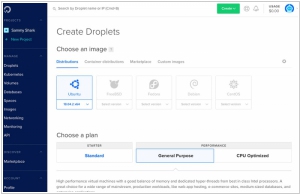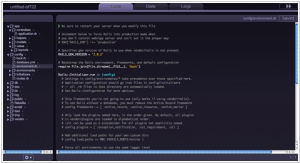DigitalOcean vs Heroku
August 19, 2023 | Author: Michael Stromann
DigitalOcean and Heroku are both popular cloud hosting platforms, but they serve different purposes and target different audiences. DigitalOcean is a Infrastructure-as-a-Service (IaaS) provider that focuses on providing virtual servers (Droplets) and gives users full control over their infrastructure. It appeals to developers and businesses who require flexibility, scalability, and customization options, offering a wide range of configurations and server management capabilities.
In contrast, Heroku is a Platform-as-a-Service (PaaS) provider that specializes in application deployment and management. It offers a simplified experience for developers, abstracting away much of the infrastructure management and allowing them to focus on writing code. Heroku supports various programming languages and frameworks and provides seamless integration with popular development tools.
See also: Top 10 Public Cloud Platforms
In contrast, Heroku is a Platform-as-a-Service (PaaS) provider that specializes in application deployment and management. It offers a simplified experience for developers, abstracting away much of the infrastructure management and allowing them to focus on writing code. Heroku supports various programming languages and frameworks and provides seamless integration with popular development tools.
See also: Top 10 Public Cloud Platforms
DigitalOcean vs Heroku in our news:
2020. Cloud for developers DigitalOcean raises $50M
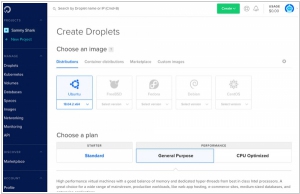
DigitalOcean, a leading cloud provider for developing modern applications, has announced the successful closure of a $50 million Series C funding round. The funding was led by Access Industries, with participation from Andreessen Horowitz. DigitalOcean Cloud offers simplified app creation capabilities for a wide range of developers, including individuals, startups, and small to medium-sized businesses. With its infrastructure and platform-as-a-service (IaaS and PaaS) solutions, DigitalOcean provides a seamless experience that eliminates the need for extensive DevOps expertise. This empowers developers to dedicate their efforts towards building innovative software. Following this funding round, the company's valuation has reached $1.15 billion, indicating a significant increase from its pre-money valuation of $1.1 billion.
2020. Cloud infrastructure provider DigitalOcean raises $100M
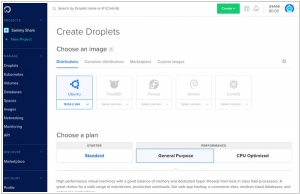
DigitalOcean, a cloud infrastructure provider with a focus on smaller businesses and younger companies, has announced today that it successfully raised $100 million. Unlike traditional sales-driven models, DigitalOcean operates as a self-serve SaaS business, allowing users to easily get started without requiring assistance. This approach avoids the costly and time-consuming sales cycles. However, while the convenience of self-signup appeals to small companies, this acquisition method often leads to high customer turnover. To address this, DigitalOcean is dedicated to establishing a niche in SMB and developer-oriented cloud infrastructure, maintaining favorable economics through low customer acquisition costs and self-service revenue generation. The profits generated from this approach sustain the company's growth, enabling it to invest in itself through debt rather than equity. Overall, this unexpected news adds an exciting element to the day.
2015. Heroku launches application development platform for Enterprise
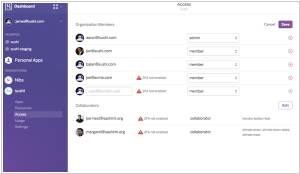
Heroku, the application development and hosting platform owned by Salesforce, has introduced a new offering known as Heroku Enterprise. This product line specifically targets large companies aiming to develop modern applications similar to those found in startups, while also providing the security features and access control often sought by enterprises. Essentially, Heroku Enterprise claims to offer the best of both worlds by enabling large enterprises to create agile-developed applications utilizing cutting-edge technologies like containers and new database services, all while adhering to the stringent governance requirements of the enterprise environment. It's an ambitious goal, and if Heroku successfully accomplishes it, they deserve commendation. With Heroku Enterprise, organizations can now effectively monitor all their developers, applications, and resources through a unified interface, streamlining their management processes.
2014. Salesforce connects Heroku to its cloud
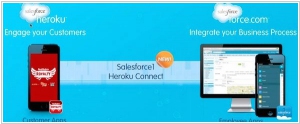
After acquiring the Heroku cloud application platform in 2010, Salesforce has finally established a connection between Heroku and Force.com through the introduction of the Heroku Connect tool. Although Heroku and Force.com are built on different development systems with distinct programming languages, Salesforce has successfully established a functional bi-directional link between them. This connection eliminates the need for extensive recoding, which can be both expensive and time-consuming, allowing Salesforce customers to effortlessly connect their Heroku apps to the Salesforce ecosystem. Salesforce recognizes the importance of showcasing tools like Heroku Connect to attract developers and assure them that Force.com seamlessly integrates with popular web toolkits like Node.js, Ruby on Rails, and Java.
2012. Top 7 Dreamforce stories

At the Dreamforce 12 conference Salesforce presented a lot of new products, but the problem is that most of these new products either had been already presented at the conference last year, or will become live to next year's conference. So, we'll just briefly go over the main ones: ***
2010. Force.com 2 - already 5 PaaS platfroms
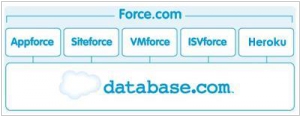
At the Dreamforce conference, Salesforce demonstrated one more time that now it's not so interested in CRM (it was mainly a subject for jokes) as in cloud platforms. Following the release of SaaS database Database.com, the company introduced another big Force.com feature - Heroku - the PaaS startup that Salesforce has recently acquired for $ 212 million. Heroku - is a cloud platform for developing and hosting Ruby-applications (Ruby - is a popular framework for developing Web apps, created by 37Signals). Heroku became one of the five PaaS-services included in the new version Force.com 2. And the new structure of the Force.com platform now looks like this: ***

